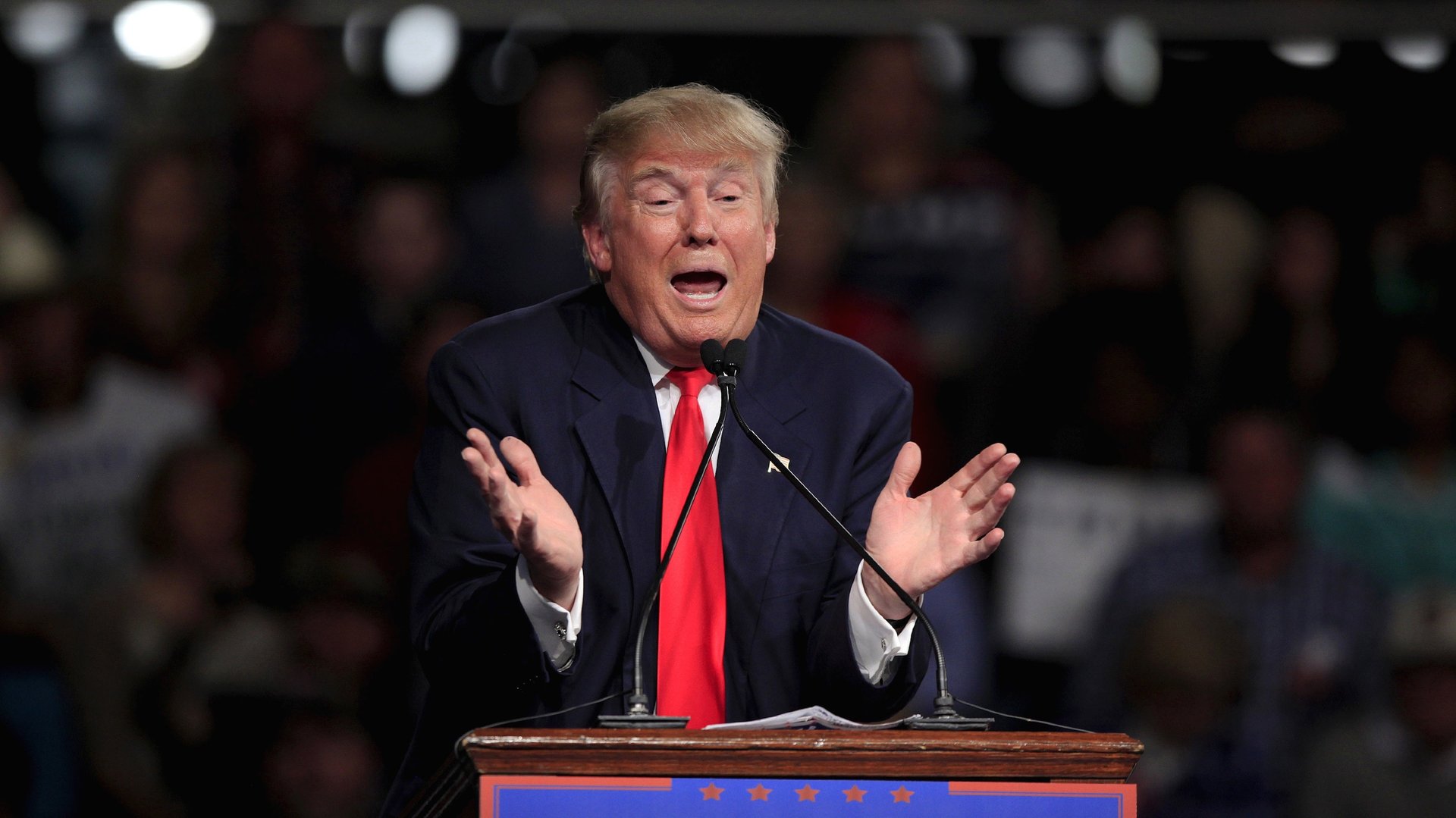Donald Trump is saying everything a Republican is not supposed to
At a town hall discussion hosted by MSNBC last night (Feb. 17), Republican presidential candidate Donald Trump made a surprising remark. When asked to articulate his position on the Israeli-Palestinian conflict, the real estate mogul (whose daughter and son-in-law are both Jewish) said he would seek neutral ground.


At a town hall discussion hosted by MSNBC last night (Feb. 17), Republican presidential candidate Donald Trump made a surprising remark. When asked to articulate his position on the Israeli-Palestinian conflict, the real estate mogul (whose daughter and son-in-law are both Jewish) said he would seek neutral ground.
“Let me be sort of a neutral guy,” he explained. “You understand a lot of people have gone down in flames trying to make that deal. So I don’t want to say whose fault it is—I don’t think that helps.”
Unstinting support for Israel has been Republican doctrine for generations—but this isn’t the first instance of Trump parting ways with the Republican party line. The real estate mogul recently traveled to Florida only to wave a red flag in front of the state’s powerful Cuban community by suggesting that preferential treatment for Cuban refugees should end.
“I don’t think that’s fair,” Trump told The Tampa Bay Times. “You have people that have been in the system for years [waiting to immigrate to America], and it’s very unfair when people who just walk across the border, and you have other people that do it legally.”
At the Feb. 13 debate he addressed the September 11 attacks and war in Iraq in a similarly contrarian vein.
“Obviously, the war in Iraq was a big, fat mistake,” he said. “The war in Iraq, we spent $2 trillion, thousands of lives… George Bush made a mistake.” On top of that, he claimed the Bush administration knowingly lied about the presence of weapons of mass destruction in the country: “They lied. They said there were weapons of mass destruction, and there were none. And they knew there were none.”
“The World Trade Center came down during your brother’s reign. Remember that,” he told Jeb Bush during the same Feb. 13 debate.
Though Trump was audibly booed by audience members in response to each remark delivered, touching the political third rail hasn’t seemed to hurt him. He currently enjoys a substantial lead over Republican opponents, according to the most recent CBS News poll—35% to second-place Ted Cruz’s 18%—and it may be that challenging Republican orthodoxies has become yet another facet of the Trump brand.